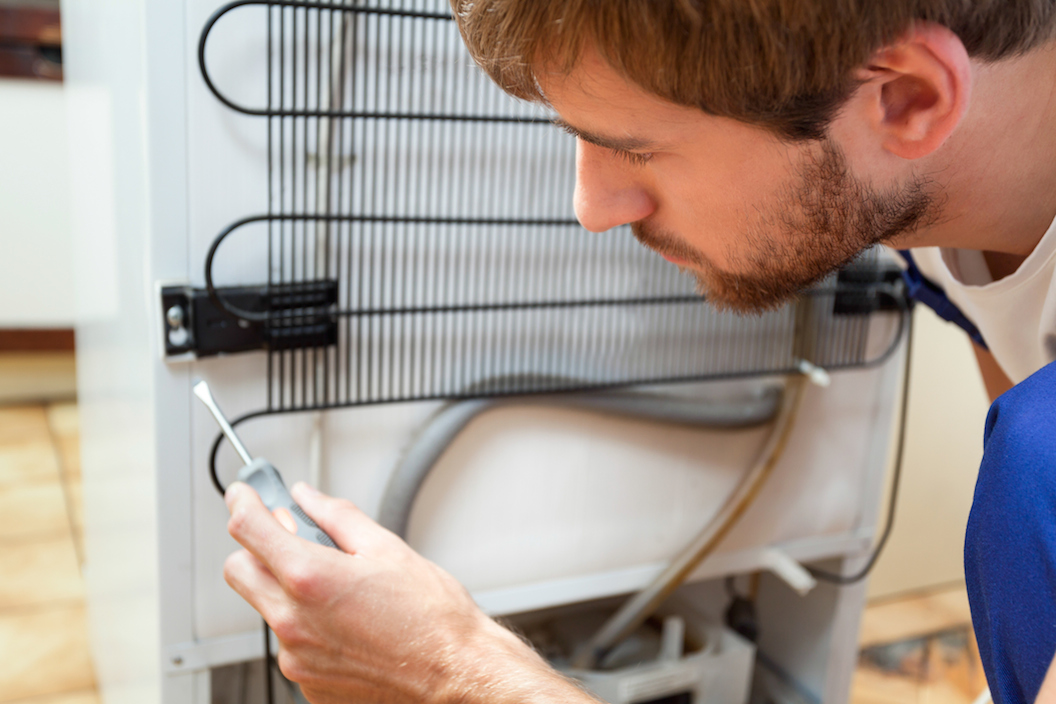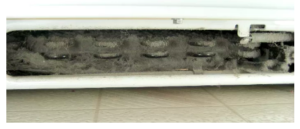
Domestic Disaster: Dealing With A Broken Fridge
The problem with our increasing reliance on technology is that when things go badly wrong it can be disastrous. Take, for example, our fridge. Many of us buy in bulk and our fridge and freezer are always full. But what then happens if we have a problem with our fridge? In the worst case scenario, all the food could be ruined and we could lose so much money!
Like any other domestic appliance, fridges need good care and maintenance to continue to run efficiently. So first let’s look at some things you can do regularly to take care of your fridge.
This is really important. Something as simple as a loose door seal can allow cool air to escape. This will cause your fridge to work harder than it needs to and waste energy in the process. Door seals should be cleaned at least twice a year and kept free of food residue. But do check that the door is closing properly: one way is to slip a piece of paper half in and half out of the door then close it, and if it slips out easily, you’re best to get your door seals checked by a professional.
- Clean the condenser coils
The condenser coils are usually located at the bottom of the back of your fridge and can get very dusty!

This means that your fridge can’t run efficiently. So at least every six months you need to unplug your fridge, pull the machine away from the wall and gently use a brush to remove dust and any other debris as best you can. Then run a vacuum on and around the condenser coils to ensure they are as thoroughly cleaned as can be.
- Ensure the temperature is right
To keep your fridge working at its maximum efficiency keep its temperature between 37 and 40 degrees Fahrenheit (around 2-4 celsius) and the freezer at 0 degrees.
Man of us do not realise that fridges work better when they are full. This is because cool foods and drinks help to absorb any warm air that streams in when you open the door. If your fridge is getting empty you can put jugs of water in to serve this purpose.
- Be prepared for disaster!
If the worst does happen and either your fridge breaks or there is a power cut, do not panic! The important thing is to keep the doors closed: if you do this your food will be safe for at least 4 hours. Your freezer will also maintain its temperature for 48 hours if full and 24 hours if half-full. Your best form of preparation is to ensure that you are well-stocked up with unrefrigerated food so that if disaster strikes you will not need to open your fridge.
However, even well-maintained fridges do sometimes go wrong. The most common problems that people have with their fridges are listed below – along with the percentages of fridge owners who experience them:
- Noise (29%)
- Leaking (27%)
- Doesn’t start when switched on (18%)
- Ice maker not working (6%)
- Fridge too warm (6%)
- Water dispenser not working (3%)
- Both fridge and freezer too warm (3%)
- Door sweating (1%)
- Lights not working (1%)
- Fridge too cold (1%)
- Fridge running too long (1%)
- Freezer too cold (1%)
If your fridge is displaying any of the above symptoms, treat it as a cry for help. It may be worth examining the fridge carefully to see if you can work out what the issue is: if it is simply that a part needs replacing then you may be able to tackle this yourself, supplemented by advice from your local hardware store. However, if in doubt seek professional help – particularly if your fridge is not functioning properly and there is a risk to the contents.
As we saw above, even if your fridge breaks down, your food should be ok for a while. Even if the problem continues and food does get ruined, many insurance companies will cover at least some of the cost. However, if you are in difficulties because of a broken fridge then Loans 2 Go can help!
We offer a range of unsecured loans for all kinds of circumstances, and if your loan is approved we aim to get the money into your bank account within 60 minutes. You can either apply online, call us on 0330 400 0403, email us on [email protected] or What’sApp us on 07976 200 597. So if you are experiencing a domestic disaster do get in touch to see how we can help!
Previous ‘Domestic Disasters’ hints and tips:



 Get your car winter-ready; top tips for safe journeys
Get your car winter-ready; top tips for safe journeys 
















